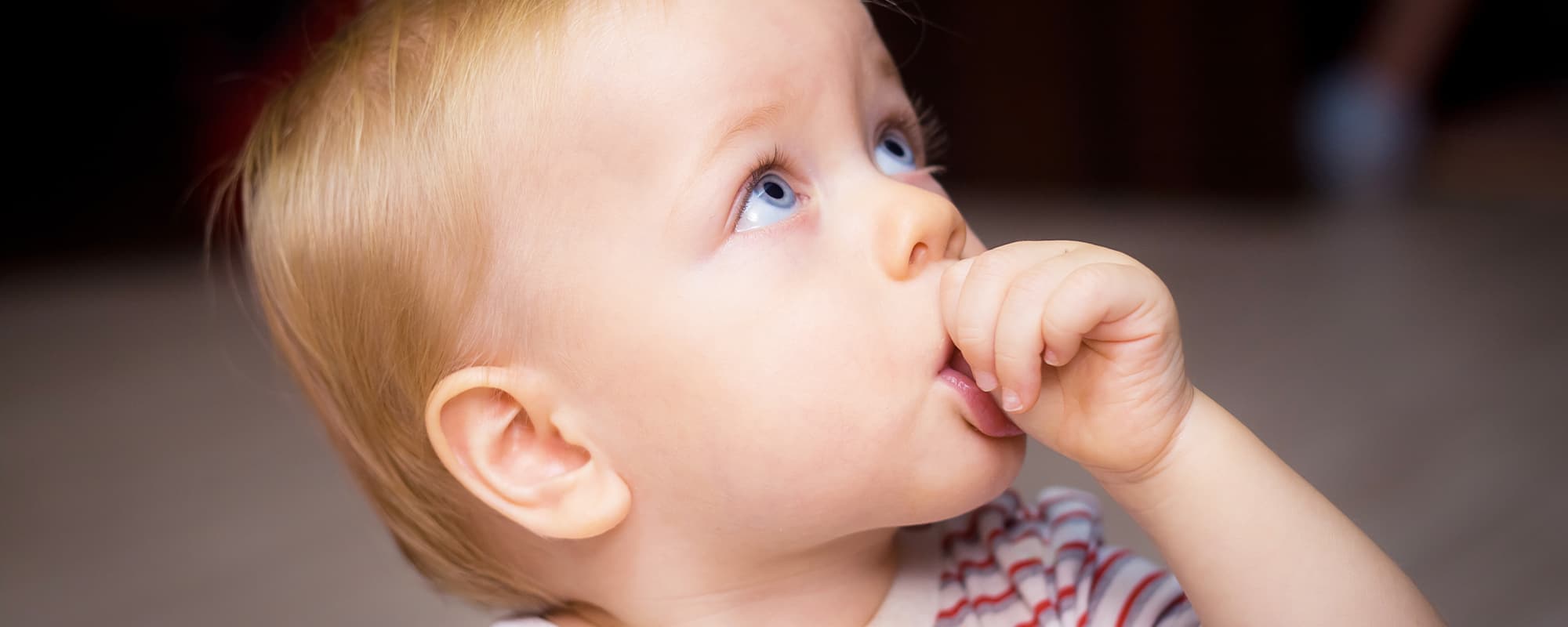Thumb and finger sucking is a natural reflex for children as it is comforting for them. Most children that start sucking their thumb, finger or using a dummy will stop the habit by 3 or 4 years of age on their own.
For some, the habit continues past this age, and then may start to affect the growth of their jaw and positioning of their teeth. This can then affect their appearance, speech, breathing, swallowing, and sometimes the skin on their thumb or lips. This may have ongoing effects and become more challenging to correct over time.
We understand all this can be stressful for parents, and we are here to help! There are many tools and tricks that dentists can recommend to help you and your child. An early dental visit will allow your dentist to assess your child’s growth and development. They can also give advice to help break their habit.
Many parents ask about the impact of their child sucking their thumb.
Thumb and finger sucking is a natural reflex for a newborn, and may continue into early childhood as it is comforting. A pacifier or dummy provides the similar comfort. However, this is an easier habit to break as the device can be removed.
Most children that start sucking their thumb will stop by 3 or 4 years of age on their own. For some, the habit continues past this age, and then may affect their growth and development.
Thumb or finger sucking or use of a dummy over a long time can lead to changes in the shape of a child’s jaw. It can also affect the way their teeth are positioned, which can have ongoing effects and become more challenging to correct over time.
The habit can change a child’s jaw shape and facial growth over time. Therefore, it may also lead to changes with their speech, chewing, swallowing, shape of their palate, and sometimes the skin on their thumb or lips. There might also be social effects of a child sucking their thumb into an older age. All this can mean more treatment required in the future to correct a child’s jaw or teeth positioning. For example, they may need braces.
We understand all this can be stressful for parents, and we are here to help! Helping a child to stop sucking their thumb is best by 3 or 4 years of age. If this is not possible, then ideally before 6 years of age.
This is when they will start getting their permanent (adult) teeth and the teeth positioning will be affected by the habit if it continues. If they stop thumb sucking before they get permanent teeth, then generally you can expect natural improvement of their teeth. It may also improve their jaw positioning, depending on the extent of the changes beforehand.
How to help them stop
There are many tools and tricks that dentists can recommend to help you and your child. An early dental visit will allow your dentist to assess your child’s growth and development, and give advice to help stop thumb sucking.
Firstly, we always recommend talking to your child about their habit. Motivation to help your child want to quit sucking their thumb is very important. Whether this is through plenty of positive reinforcement, praise and rewards, or education about the negatives effects of thumb sucking.
Identifying when or why the habit occurs can help overcome it. For example, your child may suck their thumb for comfort in unfamiliar situations, or they may only suck their thumb when watching TV or falling asleep. This means there are different approaches your dentist can recommend. Simple measures include wearing special thumb guards to sleep or during the day, a piece of jewellery on their finger as a reminder, special nail polish, or sticker charts and positive reward systems – the list goes on!
Every child is different and your friendly dentist can recommend systems that might work best for you and your child.





